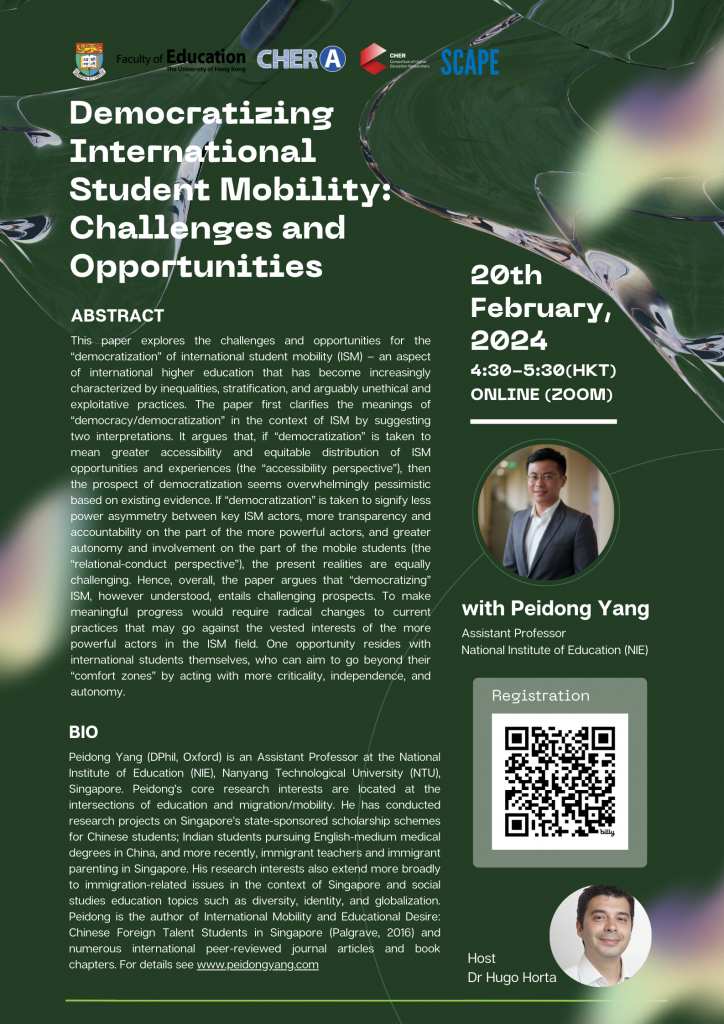
Date: 20 Feb, 2024
Time: 16:30-17:30, (HKT)
Mode: online (by Zoom)
Speaker: Dr. Yang Peidong (National Institute of Education, Nanyang Technological University)
Chair: Dr. Hugo Horta (The University of Hong Kong)
Registration Link: https://hku.zoom.us/meeting/register/tJwtduqopzojGdQuudlNTqydAoX0Guo8Ymhq
Abstract
This paper explores the challenges and opportunities for the “democratization” of international student mobility (ISM) – an aspect of international higher education that has become increasingly characterized by inequalities, stratification, and arguably unethical and exploitative practices. The paper first clarifies the meanings of “democracy/democratization” in the context of ISM by suggesting two interpretations. It argues that, if “democratization” is taken to mean greater accessibility and equitable distribution of ISM opportunities and experiences (the “accessibility perspective”), then the prospect of democratization seems overwhelmingly pessimistic based on existing evidence. If “democratization” is taken to signify less power asymmetry between key ISM actors, more transparency and accountability on the part of the more powerful actors, and greater autonomy and involvement on the part of the mobile students (the “relational-conduct perspective”), the present realities are equally challenging. Hence, overall, the paper argues that “democratizing” ISM, however understood, entails challenging prospects. To make meaningful progress would require radical changes to current practices that may go against the vested interests of the more powerful actors in the ISM field. One opportunity resides with international students themselves, who can aim to go beyond their “comfort zones” by acting with more criticality, independence, and autonomy.
About the Speaker
Peidong Yang (DPhil, Oxford) is an Assistant Professor at the National Institute of Education (NIE), Nanyang Technological University (NTU), Singapore. Peidong’s core research interests are located at the intersections of education and migration/mobility. He has conducted research projects on Singapore’s state-sponsored scholarship schemes for Chinese students; Indian students pursuing English-medium medical degrees in China, and more recently, immigrant teachers and immigrant parenting in Singapore. His research interests also extend more broadly to immigration-related issues in the context of Singapore and social studies education topics such as diversity, identity, and globalization. Peidong is the author of International Mobility and Educational Desire: Chinese Foreign Talent Students in Singapore (Palgrave, 2016) and numerous international peer-reviewed journal articles and book chapters. For details see www.peidongyang.com
